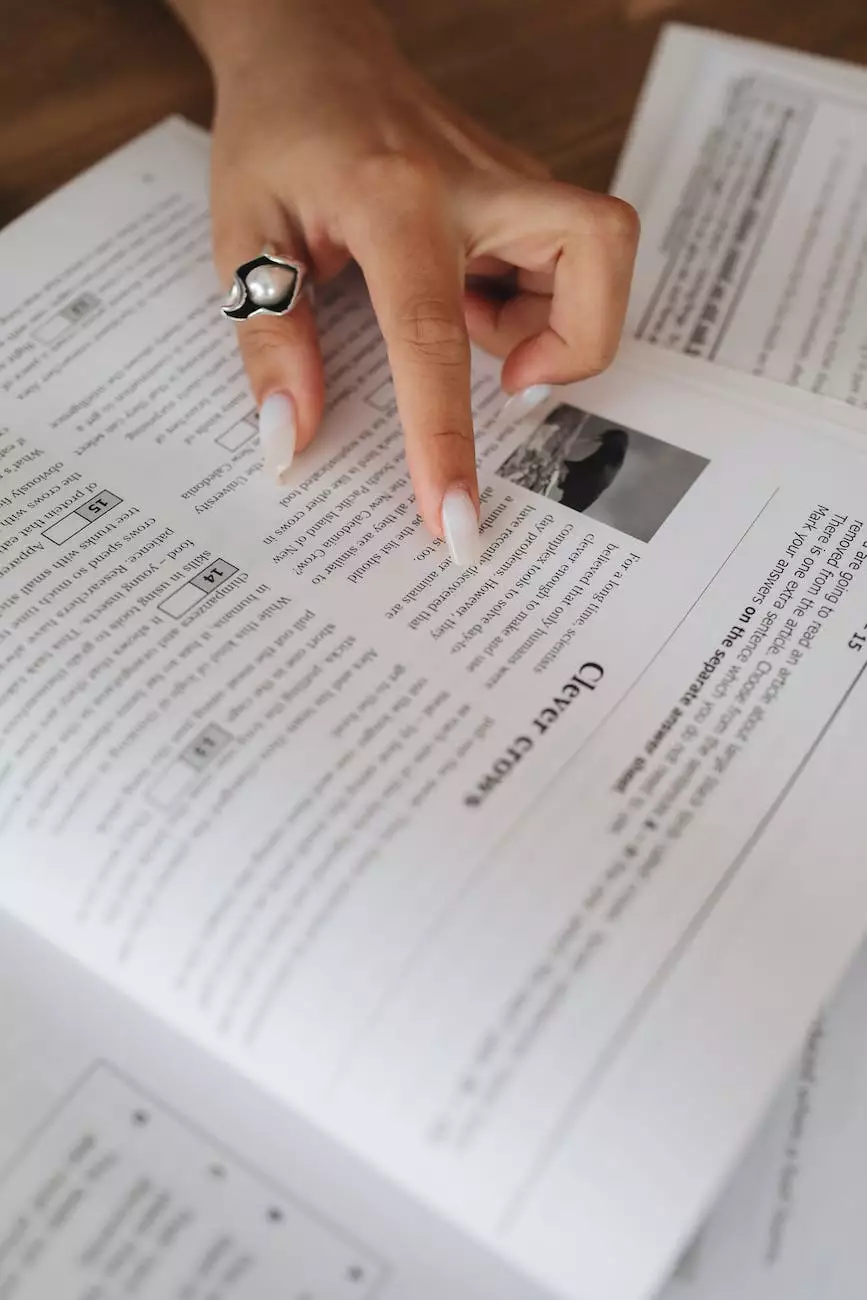Are vs. Do & Yes / No Questions – English Grammar Lesson
English Grammar Lessons
The Importance of Understanding 'Are' and 'Do' in English Grammar
As language learners, it is crucial to master various aspects of grammar to communicate effectively and accurately. In this English grammar lesson provided by NJCLT, we will explore the differences between two commonly used verbs: 'are' and 'do'. By understanding their usage and correct application, you will be better equipped to engage in meaningful conversations and express yourself fluently.
The Role of 'Are' in English Grammar
'Are' is a form of the verb 'be' and is primarily used to indicate the present tense for plural subjects. It is essential for constructing sentences involving multiple individuals or objects. By correctly using 'are', you can convey precise information and avoid confusion. Let's consider some examples:
Example 1:
Correct: We are going to the park. Incorrect: We going to the park.
In the correct sentence, 'are' is used to indicate that multiple individuals (in this case, 'we') are performing the action of going to the park. Without 'are', the sentence lacks clarity and grammatical accuracy.
Example 2:
Correct: The books are on the shelf. Incorrect: The books on the shelf.
Once again, by including 'are', you specify that the subjects ('books') are currently positioned on the shelf. The absence of 'are' renders the sentence incomplete and less informative.
Understanding the Usage of 'Do' in English Grammar
'Do' is an auxiliary verb commonly used in English to form questions, negative statements, and emphasize key points. By employing 'do' effectively, you can construct clear and grammatically correct sentences. Here are some examples:
Example 1:
Question: Do you like pizza? Negative Statement: I do not enjoy spicy food.
The word 'do' is used in the question to form a yes/no inquiry. In the negative statement, 'do' emphasizes the absence of enjoyment when it comes to spicy food.
Example 2:
Question: Do they have any pets? Negative Statement: She does not speak French.
In the question, 'do' is employed to ask about the possession of pets. In the negative statement, 'do' emphasizes the lack of ability to speak French.
Forming Yes/No Questions in English
Understanding how to form yes/no questions is vital for engaging in conversations and seeking clarifications. By following these simple guidelines, you can effortlessly generate questions:
Step 1: Start with the Auxiliary 'Do'
Begin your question with the appropriate form of the auxiliary verb 'do' (e.g., do, does, did). This step allows you to structure your sentence in a way that prompts a yes or no response. Here's an example:
Question: Do you like ice cream?
Step 2: Add the Subject
Include the subject of the question after the auxiliary verb. The subject indicates the person or thing you are referring to. Take a look at this example:
Question: Do you like ice cream?
Step 3: Finish with the Base Form of the Verb
Complete the question by using the base form of the main verb. This step ensures that your question is grammatically correct and easily understandable. Here's the final example:
Question: Do you like ice cream?
Enhance Your Vocabulary and Fluency with NJCLT's Free English Lesson
NJCLT offers this comprehensive and informative English vocabulary lesson to assist you in developing your language skills. By understanding the nuances of 'are vs. do' and mastering the formation of yes/no questions, you can communicate with confidence and precision. Remember to practice regularly and immerse yourself in English to further enhance your fluency. Happy learning!




